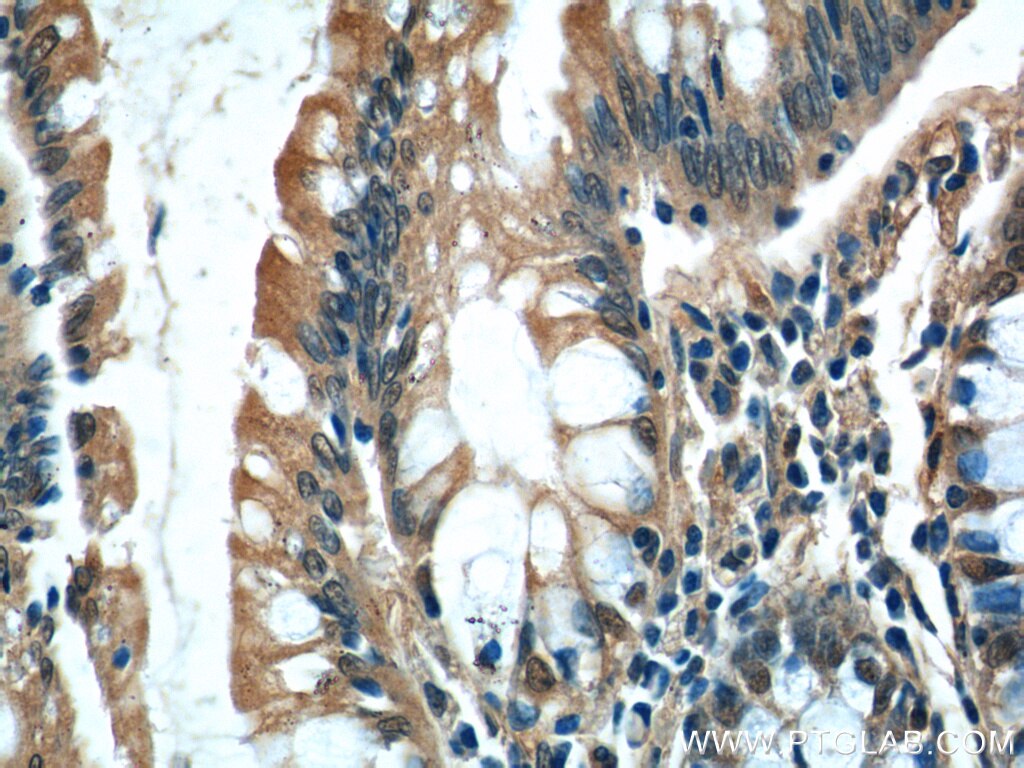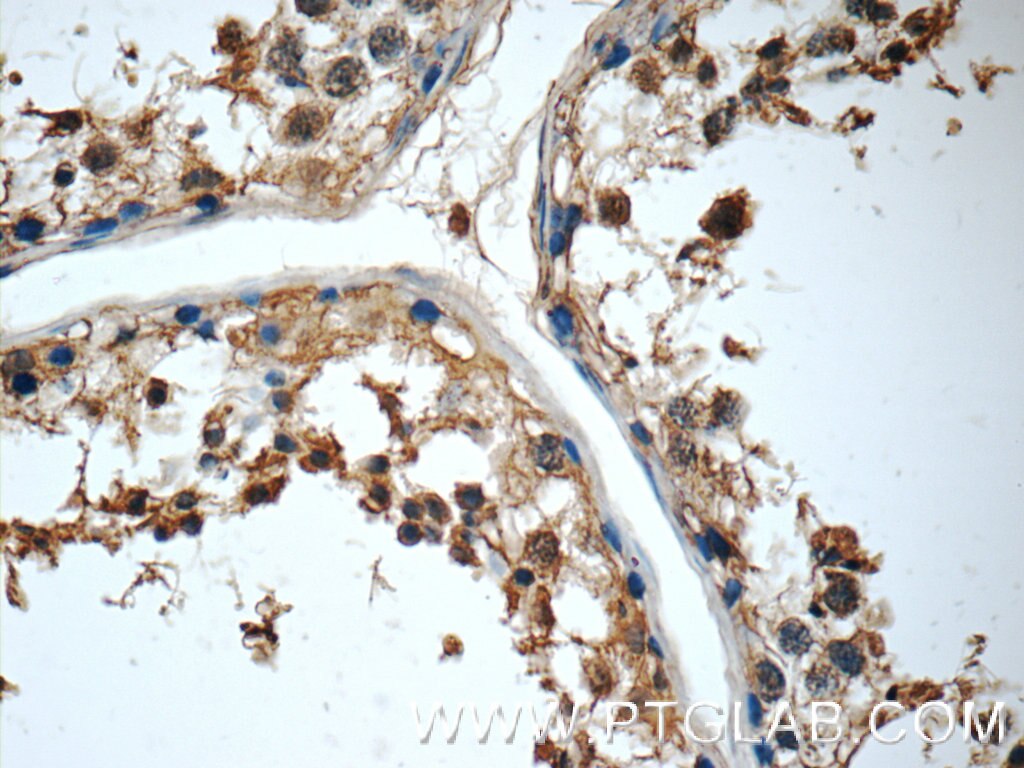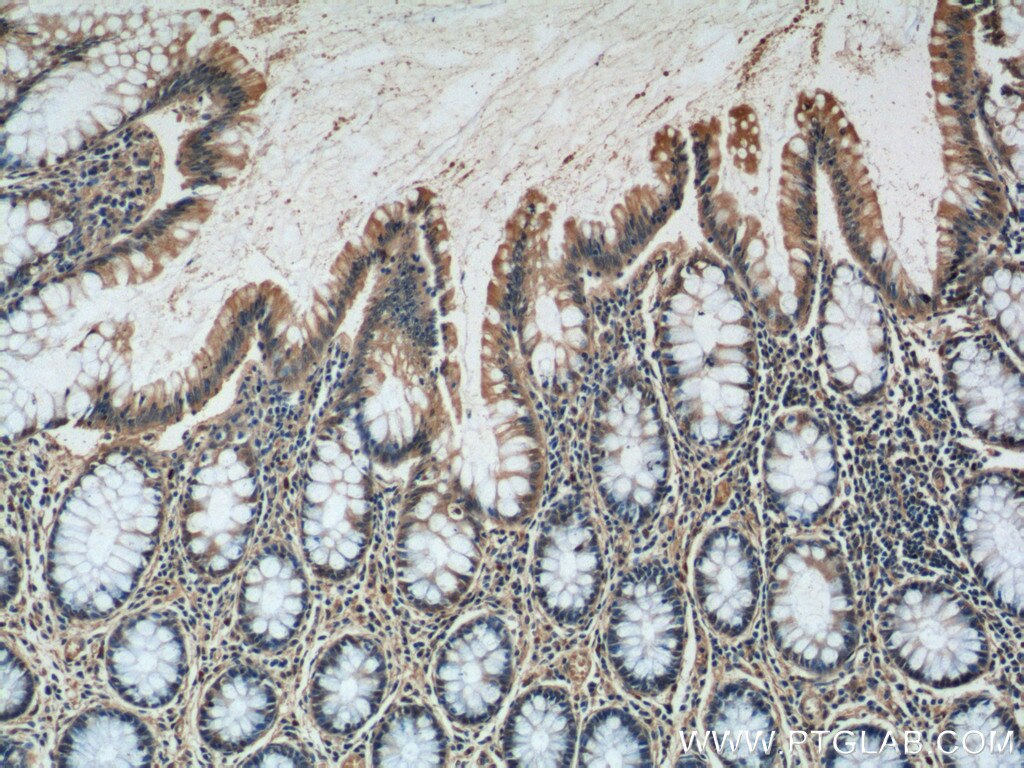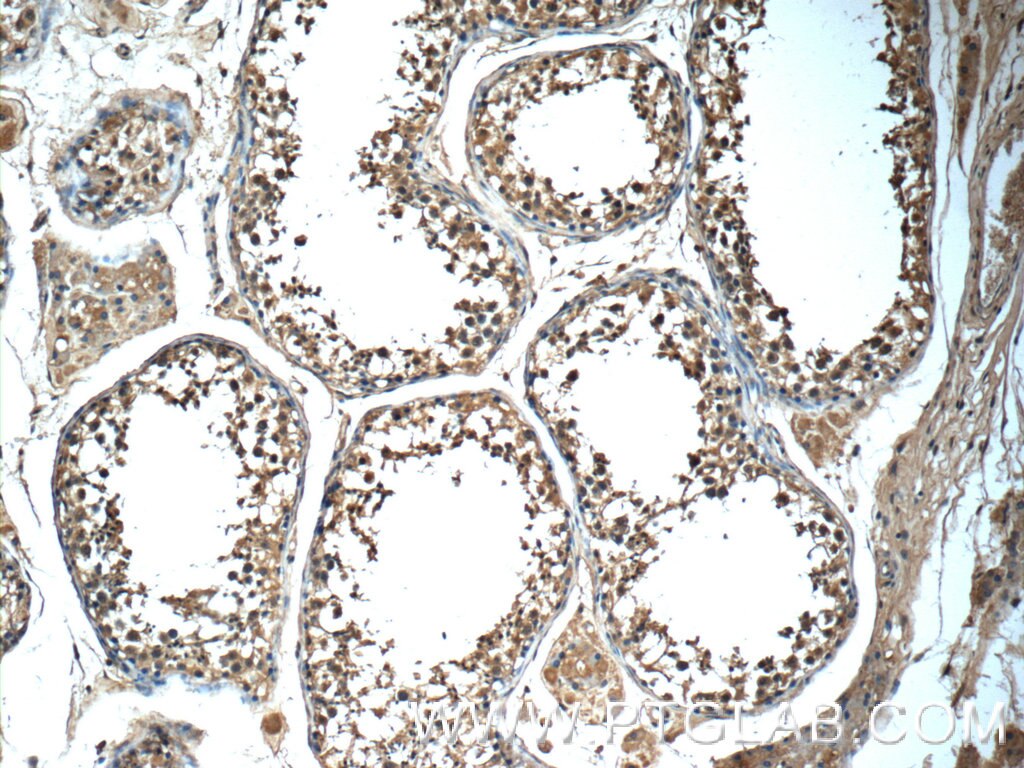MRPL36 Polyclonal antibody
MRPL36 Polyclonal Antibody for IHC,ELISA
Host / Isotype
Rabbit / IgG
Reactivity
human
Applications
IHC,ELISA
Conjugate
Unconjugated
Cat no : 16625-1-AP
Synonyms
Validation Data Gallery
Tested Applications
| Positive IHC detected in | human testis tissue, human colon tissue Note: suggested antigen retrieval with TE buffer pH 9.0; (*) Alternatively, antigen retrieval may be performed with citrate buffer pH 6.0 |
Recommended dilution
| Application | Dilution |
|---|---|
| Immunohistochemistry (IHC) | IHC : 1:20-1:200 |
| It is recommended that this reagent should be titrated in each testing system to obtain optimal results. | |
| Sample-dependent, Check data in validation data gallery. | |
Product Information
16625-1-AP targets MRPL36 in IHC,ELISA applications and shows reactivity with human samples.
| Tested Reactivity | human |
| Host / Isotype | Rabbit / IgG |
| Class | Polyclonal |
| Type | Antibody |
| Immunogen | MRPL36 fusion protein Ag9925 |
| Full Name | mitochondrial ribosomal protein L36 |
| Calculated Molecular Weight | 103 aa, 12 kDa |
| GenBank Accession Number | BC020642 |
| Gene Symbol | MRPL36 |
| Gene ID (NCBI) | 64979 |
| RRID | AB_2145917 |
| Conjugate | Unconjugated |
| Form | Liquid |
| Purification Method | Antigen affinity purification |
| Storage Buffer | PBS with 0.02% sodium azide and 50% glycerol pH 7.3. |
| Storage Conditions | Store at -20°C. Stable for one year after shipment. Aliquoting is unnecessary for -20oC storage. 20ul sizes contain 0.1% BSA. |
Background Information
Mammalian mitochondrial ribosomal proteins are encoded by nuclear genes and help in protein synthesis within the mitochondrion. Mitochondrial ribosomes (mitoribosomes) consist of a small 28S subunit and a large 39S subunit. MRP-L36 (mitochondrial ribosomal protein L36) is a 103 amino acid protein that localizes to the mitochondrion, where it exists as a component of the 39S ribosomal subunit and works in conjunction with other MRPs to mediate protein synthesis.
Protocols
| Product Specific Protocols | |
|---|---|
| IHC protocol for MRPL36 antibody 16625-1-AP | Download protocol |
| Standard Protocols | |
|---|---|
| Click here to view our Standard Protocols |





